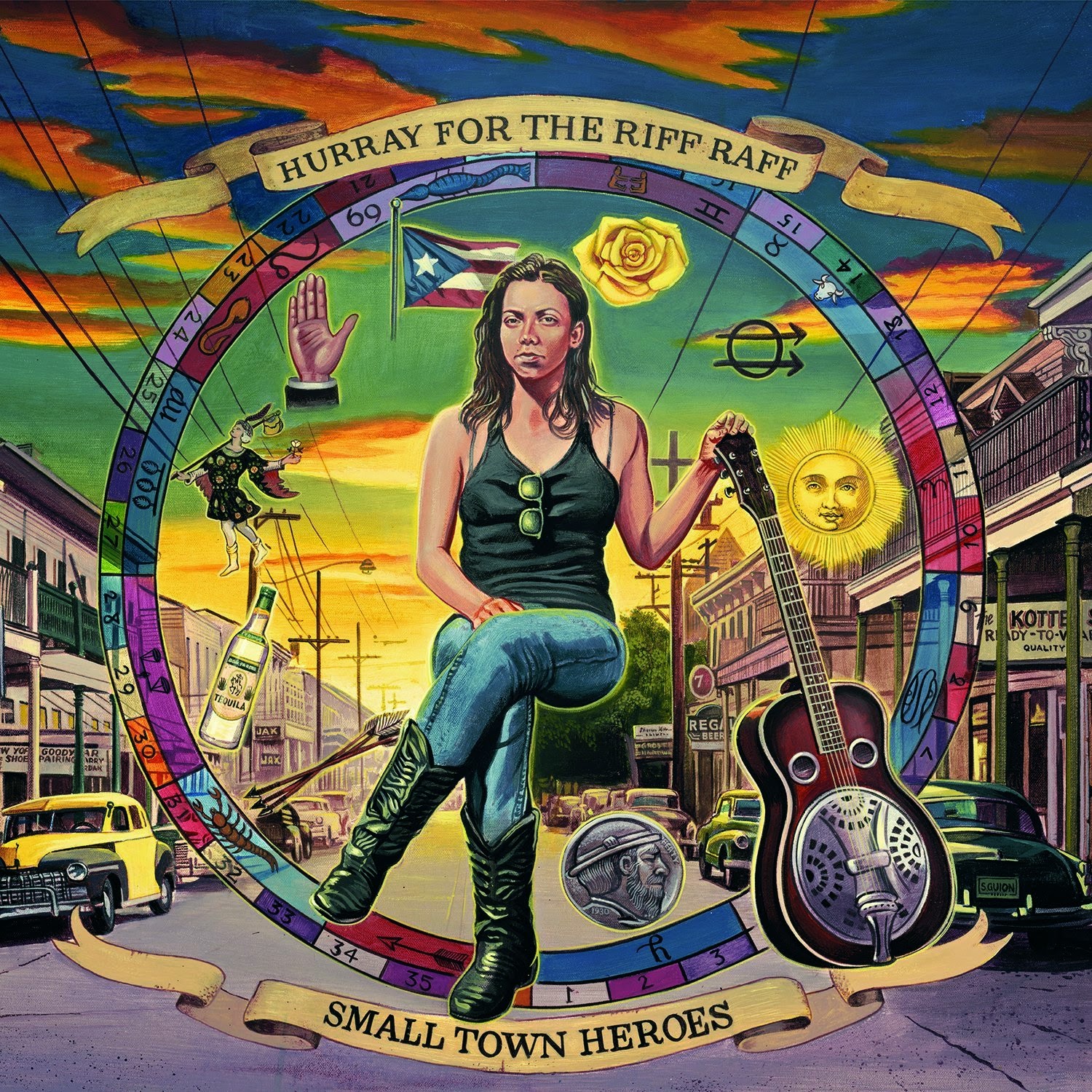Small Town Heroes by Hurray for the Riff Raff is an album that I bought last year after reading about it in Uncut magazine. This week, while revisiting Small Town Heroes and its twelve terrific country-folky cuts, I happened upon the Twitter account of Alynda Segarra, the woman behind Hurray for the Riff Raff:
- Blue Ridge Mountain is the album's opening track, and right away we are given a few hints as to Segarra's personality (and/or her Twitter bio):
My heart is a blue ridge mountain
And my head an overflowing fountain
My heart is a blue ridge mountain
But I never, never knew
Now, I could be way off the mark here, but those lines sound to me like they're being sung by a woman who is nonplussed by the amount of male attention she's receiving. Potential suitors are writing poems about her ('O my love, thy heart ist a blue ridge mountain, and thy head an overflowing fountain...'), but our protagonist is more baffled than seduced - she has never seen herself as the object of natural beauty that these lines describe, and she's not entirely sure how to feel about being objectified like this.
- As I mentioned above, most of these songs fit neatly into the traditional folk/country/blues mould, but given that cowboy songs are usually sung by...well, boys, it's interesting to note Segarra's refusal to flip the standard gender perspective just because she's a woman. For example, Good Time Blues (see video above) contains these linesThere's a girl in South Louisiana
And she is always on my mind
If you could only tell her
That I been doin' time
This isn't a cover, as far as I'm aware; this is a Segarra original, and unless the narrator is a homosexual or bisexual woman (and that would be its own form of subversion for this genre, I suppose), we can only assume that AS is singing from the same male perspective as Johnny Cash, Willie Nelson, and so many other cowboys before her. Because why should her gender prevent her from following in their footsteps, or modify the way in which she may do so?
- Finally, there's The Body Electric, which is the song that got me into Hurray for the Riff Raff in the first place. This track takes a stern look at that staple of folk and country music, the murder ballad; more specifically, it criticises the genre's all-too-common use of what I suppose we might call fridging;Tell me, what's a man with a rifle in his hand
Gonna do for a world that's all gone mad?
He's gonna shoot me down, put my body in the river
Cover me up with the leaves of September
Like an old sad song, you heard it all before
The problem with fridging - that is, killing off a character and stuffing her (it's usually a her) in the fridge for the protagonist to find and get angry about - is that it devalues the character who dies, reducing them to a plot device who never existed for any reason other than to motivate someone else by dying. We all love a good murder ballad, but in The Body Electric, Segarra suggests that perhaps we should think more carefully about the people that get killed off in those songs. Why are there so many ballads about killing people and dumping them in rivers? And does this country music cliché make such murders less disturbing when they happen in real life?



No comments:
Post a Comment